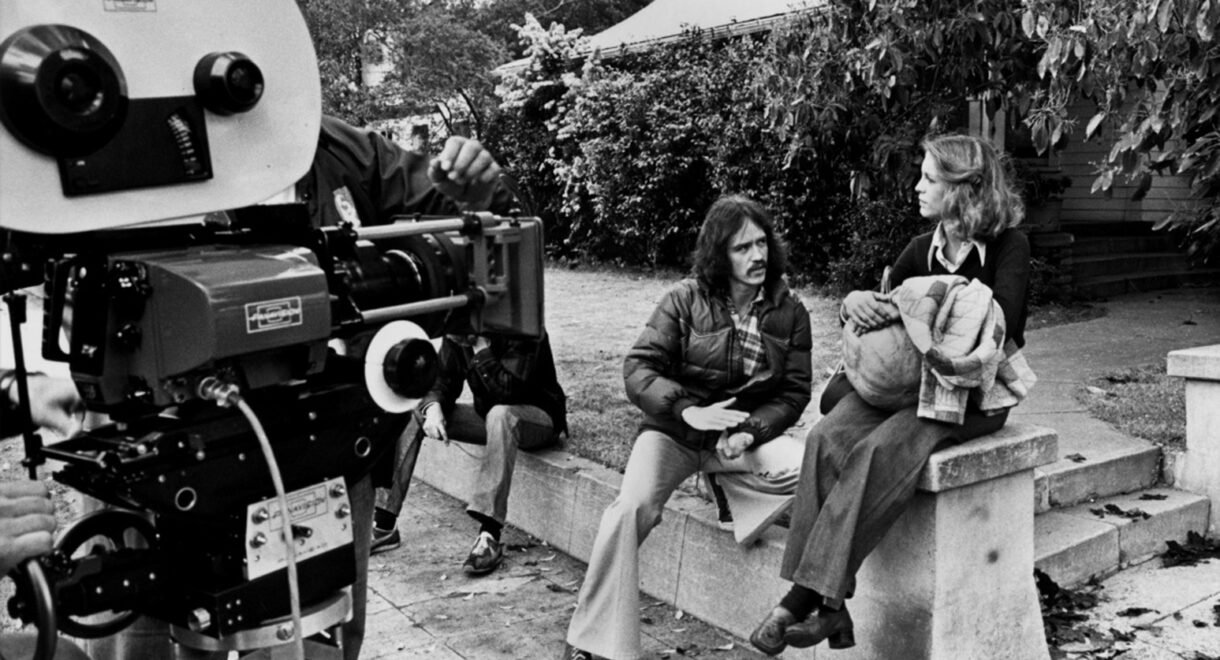Music for after after hours from cult favorite Japanese dream pop duo Sugar Plant, sometimes referred to as “Psychedelic Sade.” With the POiSON GiRL FRiEND hype reaching a […]
The Voice of Love: Remembering Julee Cruise with 7 Essential Tracks

A short retrospective on the Twin Peaks crooner, along with some of our favorite recordings from the late dream-pop icon.
Eerie, otherworldly, the epitome of ethereal, Julee Cruise will forever be remembered as the breathy, angelic voice behind some of David Lynch’s most significant works. In essence, a character in her own right that helped shape, develop and define the “Lynchian” aesthetic. And it was all due to a licensing mishap.During post-production on Lynch’s seminal 1986 film Blue Velvet, Lynch fought hard to acquire rights for This Mortal Coil’s “Song to the Siren.” When told he couldn’t use it, he wrote his own dreamy stream of consciousness lyrics on a napkin and enlisted composer Angelo Badalamenti to find a vocalist for the song. Having worked together on a musical theater production in the east village, Angelo asked Julee to scout for some possible candidates- “but he didn’t like any of the singers I recommended. He wanted dreamy and romantic. I said, ‘Let me do it.’” The rest is history.
Mysteries of Love (1986)
Heavily featured and scoring the wholesome love affair between the two leads, Mysteries of Love pointedly highlights the trace amounts of innocence amid the dark depravity that is Blue Velvet. Cruise, who considered herself a belter (she even played Janis Joplin in an Off-Broadway production called The Beehive), had to invent a whole new vocal persona for the song. She transformed her comfortable, strong, and guttural approach into its opposite. One writer called it “angel-on-Quaaludes vocals,” but Cruise thought of it as “singing like the soloist in a boys’ choir.” Lynch’s direction for the sound was typically Lynchian, telling Badalamenti, “Oh, just make it like the wind, Angelo… It should be a song that floats on the sea of time. Make it cosmic! Mysteries of Love would eventually cement and crystallize a musical aesthetic that Lynch would maintain for many years to come.
“Into The Night” (1989)
Lynch liked Cruise’s voice so much that he signed a record contract with her and produced her now cult-classic 1989 album Floating Into the Night. Cruise recalled the process: “David doesn’t know how to talk in musical terms, so he talked to me like he was directing a film,” Cruise told the Los Angeles Times during its initial release. “He’d say things like, ‘Really sad, Julee, make it just rip your heart out!’ Or, ‘You’re singing into a void and feel sad but not hopeless.’ His music is different from his films. He’s much more tender and intimate in his music — it’s as if he’s whispering a secret to you in his songs.”
Several songs from the LP would later soundtrack Lynch’s televised opus Twin Peaks, with the instrumental of Falling becoming the series’ theme. Her dreamy, transcendent music and the show’s eerie, surrealist tone proved to be a match made in heaven, elevating every scene in which her whispery voice appeared. She also gives a chilling performance of “Falling” in the pilot, one of the show’s most iconic moments, and appears throughout as the local roadhouse singer.
Here is a video of Cruise performing “The World Spins” in S2E7, one of the show’s most moving and pivotal episodes.
The album has since become a milestone. Cruise would identify its lasting influence by noting similarities in many of today’s young pop artists, citing Lana Del Ray and Sky Ferreira as obvious examples. David Bowie, too, was a big fan. In a recent tweet by his filmmaker son Duncan Jones, he recalled that Bowie “would put ‘Floating Into the Night’ on almost every night as dinner music. A staple.”
Summer Kisses, Winter Tears (1991)
“Until the End of the World” (1992)
After Twin Peaks, Cruise, Badalamenti, and Lynch united again to produce a cover of Elvis Presley’s “Summer Kisses, Winter Tears” for Wim Wenders’ 1991 sci-fi film Until the End of the World. Cruise infuses the heartbreak classic with existential magic.
Rockin’ Back Inside My Heart (Tibetan 12″ Mix) (1991)
One for the heads, Rockin’ was the only song off Floating other than Falling to get a 12-inch single, and with it, a few amazing deep-cut edits. The Tibetan 12-inch mix and dub versions clearly sample (or possibly re-create) the iconic bassline and drums of Liquid Liquid’s “Cavern.” Tune!
Questions in a World of Blue (1993)
Cruise recorded her follow-up record with Lynch and Badalamenti, The Voice of Love, in 1993. It was, unfortunately, a commercial flop much like the Twin Peaks follow-up prequel, Fire Walk With Me. “Second album syndrome is the worst,” Ms. Cruise said in an interview in 2018. “L.A. is a lot like London. You know, they get sick of things real quick, and they got sick of Twin Peaks real quick. And everyone ran.” In the 1993 film, she also reprised her roadhouse singer role and turned in another magnetic moment.
After her second album, Cruise appeared in a series of musical Off Broadway productions. Her husband Edward Grinnan said it was her performance in the musical Return to the Forbidden Planet in 1991 that caught the attention of the B-52s. She later replaced Cindy Wilson as one of the band’s lead singers and toured with them for a while. After many years touring with the B-52s and Bobby McFerrin, Cruise fulfilled a longtime goal of performing at the Public Theater in New York. In 2003 she was cast in the musical Radiant Baby, about the life of the legendary graffiti pop artist Keith Haring.

Cruise released two more LPs before her passing: 2002’s The Art of Being a Girl, on which she departed from her dream-pop sound, embraced her natural singing voice and featured a loungey, downtempo musical backdrop; and a 2011 electronic release in collaboration with DJ Dimitry.
A quarter-century after Twin Peaks first aired, Cruise reprised her role in an episode of Showtime’s reboot of the TV series. In an interview with The Los Angeles Times in 2017, she reflected on her decades-long Twin Peaks journey.
“It was so much fun to be part of something that just went ba-boom!” she said. “You didn’t know it was going to do that. What a nice surprise life takes you on.”

Cruise was secretly suffering from lupus throughout this time and consequently lost her hair and “had the bones of an 85-year-old woman at 33,” she said. She also battled “depression and alcohol and drug addiction,” her husband told NPR. After 30 years of fighting the disease, she succumbed to the pain. Her husband wrote on Facebook the day of her passing, stating, “She left this realm on her own terms. No regrets. She is at peace.”
Lynch posted a video message saying, “It might be a good time to appreciate all the good music she made and remember her as being a great musician, great singer, and a great human being.”
In an interview with Pitchfork in 2018, Cruise reflected on her late father and her family’s cemetery plot in Minneapolis. “We have our own great graveyard there,” she said, “but I’m not gonna get buried. I’m going to have my ashes mixed in with my dogs. They’re gonna spread my ashes across Arizona, and Arizona is going to turn blue.”
We are so deeply saddened by her passing; she was an otherworldly crooner, a dream-pop icon, and our favorite roadhouse singer. RIP 💙
Falling (1989)
In Sheep’s Clothing is powered by its patrons. Become a supporter today and get access to exclusive playlists, events, merch, and vinyl via our Patreon page. Thank you for your continued support.










